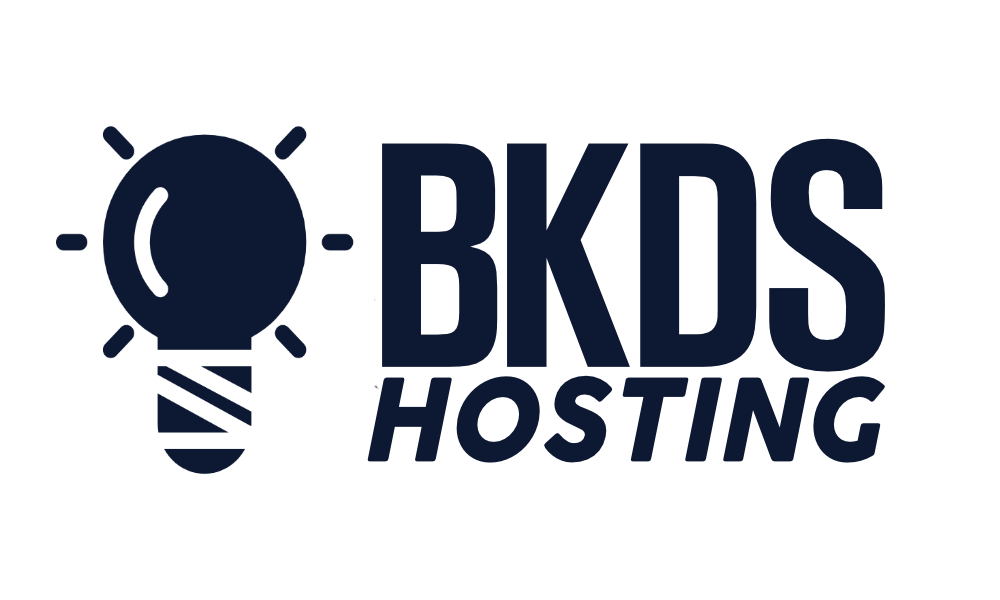In an era of digital dominance, a robust online presence is not merely an advantage, but a necessity for businesses seeking growth and expansion. Selecting an appropriate web hosting service forms the backbone of this digital strategy, with the choice of provider significantly impacting factors such as site speed, security, and scalability. This detailed analysis will provide an insight into the top 15 web hosting options for businesses looking to broaden their digital footprint. From Greengeeks' eco-friendly hosting to Liquid Web's high-performance solution, we will meticulously assess the unique offerings of each platform. By doing so, we aim to equip you with the knowledge necessary to make an informed decision tailored to your enterprise's specific needs. The question is, which of these hosting platforms will prove to be the right fit for your business?
Understanding Web Hosting Basics
Navigating the intricate landscape of web hosting might seem daunting, but understanding the basic types and their unique attributes can significantly streamline the process and aid in making an informed decision. Key to this comprehension are the various web hosting options available, each serving unique business growth needs.
Shared hosting, for instance, is an affordable choice fitting for small businesses with limited resources. This contrasts with VPS hosting, which offers dedicated resources for improved performance and scalability, vital for business expansion. For maximum performance and control, dedicated hosting is the best web hosting provider, albeit a more costly one.
Cloud hosting, with its scalable and pay-as-you-go model, suits businesses with fluctuating traffic patterns. Specialized hosting types like WordPress and e-commerce hosting are optimized for specific website types, offering tailored solutions. Reseller hosting, on the other hand, facilitates hosting multiple websites under one account. Managed hosting provides time-saving and enhanced security features, though customization may be limited. Lastly, free hosting, while cost-effective, offers restricted resources and may display ads, impacting user experience.
Understanding these web hosting basics can guide you to the top 15 web hosting choices, enabling informed decisions aligned with specific business expansion goals.
Choosing Bluehost for Business
Transitioning to the topic of Choosing Bluehost for Business, it is essential to understand the key advantages that make Bluehost a viable option for businesses. Implementing Bluehost successfully requires a comprehensive understanding of its user-friendly interface, cost-effectiveness, and reliable technical support. A detailed exploration of these aspects will provide a clearer perspective on why Bluehost is a preferred choice for business web hosting solutions.
Bluehost's Key Advantages
Why should businesses consider Bluehost for their web hosting needs? As a highly versatile platform, Bluehost offers shared, dedicated, and VPS hosting options, effectively catering to various business requirements. One key advantage is its balance between pricing and features, making it an ideal hosting choice for business expansion, particularly for small businesses. Bluehost is also recognized in the top 15 web hosting providers due to its excellence in WordPress hosting, offering custom tools for WordPress site creation. Adding to its appeal, Bluehost provides a free Weebly website builder and Cloudflare CDN, enhancing website performance and security. This business-oriented approach is complemented by 24/7 live chat support, ensuring prompt assistance for any technical issues.
Implementing Bluehost Successfully
Building on Bluehost's impressive features and advantages, successful implementation hinges on recognizing how this platform can best serve individual business needs. As one of the top 15 web hosting choices, Bluehost is ideal for business expansion, offering unlimited disk space and robust security.
- Domain Selection: Choose a domain that reflects your business for easy recognition.
- Plan Selection: Opt for a scalable hosting plan to accommodate business growth.
- Security: Bluehost offers implementing robust security measures, including SSL certificate and regular backups.
- Support: Use the 24/7 live chat support for resolving issues quickly.
Features of Web.com Hosting
Offering a broad spectrum of hosting types including Shared Hosting, VPS Hosting, Dedicated Hosting, Cloud Hosting, WordPress Hosting, E-commerce Hosting, and more, Web.com Hosting is an ideal solution for businesses at different growth stages. Particularly, its features are a tremendous asset to businesses aiming for expansion.
Web.com Hosting offers unlimited scalability and customization, offering dedicated resources and enhanced security features. This flexibility and reliability, paired with pay-as-you-go pricing, make it a suitable choice for businesses with fluctuating web traffic.
Another standout feature of Web.com Hosting is its easy setup and management. This is particularly beneficial for small businesses, enabling them to establish a professional web presence without significant investment or technical expertise.
Moreover, Web.com Hosting provides dedicated email servers. These come with professional email addresses, personalized accounts, spam filtering, and sync across devices, affirming its commitment to comprehensive business solutions.
HostGator: A Reliable Choice
While Web.com Hosting provides a comprehensive array of services for business growth, another noteworthy contender in the top 15 web hosting choices for business expansion is HostGator, renowned for its feature-rich offerings and flexibility.
HostGator: A Reliable Choice stands out for its unbeatable range of hosting plans that cater to businesses of all sizes, from small start-ups to established enterprises. Its suitability for both Linux- and Windows-based websites adds an extra level of convenience for diverse users.
- Feature-rich Packages: HostGator offers superior WordPress, VPS, dedicated, and cloud server packages, enabling businesses to leverage the most suitable resources for their needs.
- Windows-based Server: The rare option to select a Windows-based server sets HostGator apart in the competitive web hosting market.
- Ideal for SMBs: Especially well-suited for small and midsize businesses, HostGator simplifies the process of rapidly building a website.
- Competitive Pricing: With rates starting at just $3.75/month for shared hosting, HostGator is a cost-effective, reliable choice for business expansion.
Ipage Hosting for Business Growth
In considering web hosting options for business expansion, iPage Hosting presents a compelling case for growth-oriented enterprises. The features of iPage Hosting, such as unmetered disk space, bandwidth, and a free domain name, provide the necessary infrastructure for businesses to scale effectively. A detailed analysis of iPage Hosting's pricing structure in relation to its benefits will further illuminate its potential as a driving force for business growth.
Ipage Hosting Features
To fuel business growth and cater to varying needs, iPage Hosting delivers an array of hosting types such as shared, VPS, dedicated, cloud, WordPress, e-commerce, reseller, managed, free, email, Windows, and Linux hosting.
iPage hosting features include:
- Shared Web Hosting: Known as one of the best shared hosting services, it offers a cost-effective solution for small businesses.
- Free Domain for a Year: This reduces the initial hosting costs, making it an attractive choice for startups.
- Specialized WordPress Hosting: This service includes extra security features along with easy installation and management, catering to businesses using WordPress.
- E-commerce Hosting: With features like shopping cart integration and SSL certificates, iPage ensures their e-commerce hosting supports high-traffic business website hosting.
Enhancing Business With Ipage
Leveraging iPage hosting can significantly enhance a business's online presence and growth, thanks to its vast array of services, including unmetered traffic and disk space, a free domain, impressive uptime, scalable hosting plans, and robust security features. These offerings align with the diverse business requirements, making iPage a viable choice in our top 15 web hosting for business expansion.
iPage's scalable hosting plans support the new businesses grow, allowing for adjustments in line with the changing web hosting needs. They provide a platform for unlimited websites, further enhancing business with iPage. Its high uptime ensures reliable customer accessibility, essential for a positive online reputation. Lastly, with robust security measures, businesses can maintain their online credibility, a crucial aspect in today's digital landscape.
Ipage Pricing Analysis
Examining the cost-effectiveness of iPage's hosting services reveals that their introductory hosting plans begin at a competitive price of $1.99 per month, making it an attractive choice for businesses seeking affordable expansion solutions. As part of our iPage pricing analysis, we have identified key features that position iPage among the top 15 web hosting choices for business expansion.
- Unmetered traffic and disk space: A boon for growing businesses, as it allows for scalability without additional costs.
- Free domain: This eliminates extra expenses, contributing to the overall affordability.
- 99.98% uptime: Ensures your business website is always accessible, supporting continuous growth.
- Scalable hosting options: iPage's flexible plans cater to evolving business needs, making it a smart hosting choice.
The Benefits of TMD Hosting
TMD Hosting, renowned for its broad spectrum of hosting options, consistently delivers scalable and customizable plans that can effectively accommodate the growth of your business. As a top 15 web hosting choice, TMD Hosting stands out with its exceptional hosting services tailored for business expansion.
The benefits of TMD hosting are manifold. Here is a snapshot:
| Feature |
Benefit |
Relevance |
| Broad Range of Hosting Options |
From shared to dedicated hosting, there is a suitable plan for every business scale. |
Provides flexibility and scalability to accommodate growth. |
| Enhanced Security |
Specialized support for WordPress websites and advanced security features. |
Offers robust protection for your online assets. |
| E-Commerce Hosting |
Features such as shopping cart integration and SSL certificates. |
Makes online sales seamless, boosting business performance. |
| 24/7 Expert Support |
Round-the-clock technical support for beginners and experienced users. |
Ensures smooth operation and prompt problem resolution. |
TMD Hosting offers web hosting choices that provide a solid foundation for businesses seeking to expand their digital footprint. With its diverse hosting options, enhanced security, e-commerce features, and expert support, TMD Hosting proves a reliable partner for your business growth.
InMotion: A Versatile Host
InMotion, a versatile web host, provides an array of hosting plans that cater to diverse business requirements, ranging from shared to dedicated and cloud hosting options. Their services offer an advantageous blend of robustness and scalability, making them suitable for businesses experiencing growth and high-traffic websites. Additionally, they are known for their technical support efficiency, including a 24/7 customer support system and user-friendly features such as free SSDs and cPanel.
InMotion's Hosting Plans
Diving into the versatility of its offerings, InMotion provides an array of hosting plans, ranking prominently in the top 15 web hosting choices for business expansion. Each plan is tailored with unique features and benefits to suit different business needs.
- Shared Hosting Plan: An affordable option ideal for small, low-traffic business websites, though it may experience slower load times during peak hours.
- VPS Hosting Plan: Offers dedicated resources for better performance, scalability, and customization, ideal for growing businesses.
- Dedicated Hosting Plan: Provides maximum performance and control, suitable for high-traffic websites, but is a pricier option.
- Cloud Hosting Plan: A scalable, flexible hosting solution with pay-as-you-go pricing, perfect for businesses with fluctuating traffic.
Each plan is integral in facilitating business expansion through effective web hosting.
Technical Support Efficiency
Providing versatile technical support, InMotion Hosting ensures efficient resolution of website issues, backed by a knowledgeable and responsive team that is available round-the-clock. This makes InMotion a viable choice when choosing a hosting provider. They support the new, and the experienced, with a helpful customer service team that hosts offer chat support around the clock.
InMotion's technical review process ensures that every customer query is adequately addressed, promoting reliability and performance. Their continuous efforts to provide top-notch customer service make them a leading one provider in the web hosting industry.
| Features |
Description |
| Knowledgeable Team |
Provides timely solutions to technical challenges |
| 24/7 Availability |
Ensures round-the-clock assistance |
| Efficient Support |
Contributes to high website uptime |
| Customer Praise |
Known for addressing complex technical issues |
IONOS: Business-oriented Web Hosting
Specializing in business-oriented web hosting solutions, IONOS delivers reliable, secure, and scalable services tailored specifically to facilitate business growth and expansion. With its innovative approach, IONOS has become a prominent choice among the top 15 web hosting options for businesses aiming to expand their digital footprint.
- Reliability: IONOS guarantees a high uptime rate, ensuring your business website is accessible to customers round the clock.
- Security: IONOS provides a free SSL certificate, safeguarding your business website from cyber threats.
- Scalability: With IONOS, you can easily scale your hosting plan in line with your business expansion and growing needs.
- Support: IONOS offers 24/7 expert support, providing timely assistance to ensure seamless business operations.
IONOS' commitment to transparency is evident in its pricing structure, with no hidden fees. This makes it a preferred choice for businesses seeking cost-effective, yet powerful web hosting choices for business expansion. Through its comprehensive and business-oriented web hosting solutions, IONOS plays an instrumental role in empowering businesses to leverage the digital landscape for growth and expansion.
Why Choose DreamHost?
When examining the landscape of web hosting options for business expansion, DreamHost emerges as a compelling choice. With its impressive performance metrics, robust security features, and diverse range of pricing plans, it can cater to diverse business needs. In the subsequent discussion, we will explore these aspects of DreamHost in greater detail, illuminating why it stands as a strong contender in the web hosting market.
DreamHost's Impressive Performance
With high uptime and reliable service, DreamHost emerges as a powerful contender in the web hosting market, offering scalable and flexible plans that are ideally suited to businesses experiencing varying levels of traffic. This feature places them among the top 15 web hosting choices for business expansion.
- Impressive Performance: DreamHost's impressive performance is underscored by their high uptime, ensuring minimal interruptions to business operations.
- Scalable and Flexible Plans: DreamHost's web hosting plans adjust to varying traffic levels, catering to both growing and established businesses.
- Affordable Pricing: Starting at $2.59/month with a free domain, DreamHost's affordability makes it an ideal choice for business expansion.
- Responsive Support: DreamHost provides 24/7 customer support, ensuring timely resolution of issues that may impact a business's digital presence.
Security Features Offered
DreamHost fortifies your online business presence with robust security features, aiming to safeguard your website and customer data meticulously. As a leading provider in robust web hosting and cloud hosting services, DreamHost offers enhanced security features tailored for businesses seeking reliable hosting.
These features include SSL/TLS certificates for secure transactions, automated backups, advanced server-side firewalls, intrusion detection systems, and free privacy protection for your domain. Their customer support is top-notch, assisting in web development and any security concerns that may arise.
| Feature |
Description |
| SSL/TLS Certificates |
Secure transactions and data encryption |
| Automated Backups |
Safeguards your website data |
| Advanced Security |
Firewalls and intrusion detection systems |
| Free Privacy Protection |
Prevents unauthorized access |
| Customer Support |
Assists in web development and security concerns |
DreamHost is committed to the security of your online business, providing it the strong foundation it needs.
Pricing and Plans
Having established the strong security foundation offered by DreamHost, it is imperative to explore their varied and cost-effective pricing plans designed to cater to a wide range of business needs and budgets. As businesses grow, their future scalability needs are deftly handled by DreamHost's strategic offerings.
- DreamHost offers VPS hosting, a scalable solution that can be tailored to businesses' evolving demands.
- Their plans include email, an essential communication tool for every business.
- The pricing and plans are cost-effective, starting at just $2.59 per month.
- Offering both WordPress and non-WordPress plans, they cater to a wide variety of website types.
Choosing the Best Web Hosting involves careful consideration of these factors, ensuring a resilient, scalable, and cost-effective solution for business expansion.
Affordable Hosting With Namecheap
For small businesses seeking a budget-friendly solution to establish an online presence, Affordable Hosting with Namecheap offers a range of hosting plans that are not only easy to set up and manage, but also ideally suited for low-traffic websites. As a contender for the Best Cheap Web Hosting, Namecheap provides an all-inclusive web hosting service that comes with domains or SSL included.
They offer different types of hosting services, including shared, reseller, VPS, and dedicated servers, all designed to cater to varying needs. The shared hosting plan, perfect for starters, offers unlimited bandwidth, a robust control panel, and unlimited FREE SSL for one year. Meanwhile, the VPS hosting services are designed for businesses requiring a bit more power and flexibility. These come with full root access and optional server management.
Despite being affordable, Namecheap doesn't compromise on the quality of service. However, some users may experience slower loading times during peak hours. Aside from this minor drawback, the affordable hosting with Namecheap remains a reliable solution for business expansion. The easy setup, budget-friendly prices, and a range of hosting options make Namecheap an ideal choice for businesses aiming for growth.
HosterMada for Small Businesses
Building on the idea of affordable web hosting for business expansion, another reliable option in the market is HosterMada, which provides a variety of hosting services tailored for small businesses. HosterMada is ideal for small businesses seeking reliable, scalable, and robust online solutions.
Here are four key offerings from HosterMada:
- Shared Hosting: This is an affordable, user-friendly option for small businesses operating low-traffic WordPress websites. It offers easy setup and management.
- VPS Hosting: This option delivers dedicated resources for better performance, scalability, and customization, making it an excellent choice for growing businesses.
- Dedicated Hosting: For high-traffic websites, HosterMada's dedicated hosting provides the maximum performance and control. However, this option requires technical expertise for setup and maintenance.
- Cloud Hosting: HosterMada also offers one of the best cloud hosting solutions. It's scalable and flexible, with a pay-as-you-go pricing model, accommodating businesses with fluctuating traffic.
SiteGround: A Comprehensive Solution
In the realm of comprehensive web hosting solutions, SiteGround emerges as a robust contender, providing a wide array of hosting types including shared, VPS, dedicated, cloud, WordPress, and e-commerce, suitable for businesses at all stages of growth. As one of the top 15 web hosting choices, SiteGround offers a comprehensive solution that ensures high uptime, unlimited traffic, and responsive customer support, ideal for business expansion.
SiteGround's reliability and scalability make it an excellent choice for small businesses and growing enterprises alike. Its specialized support for WordPress-related issues and additional security features are particularly noteworthy for those contemplating building a WordPress site. However, it is not solely a WordPress-centric platform. Its features are akin to WP Engine, making it a versatile hosting option even for non-WordPress websites.
The SiteGround platform is also renowned for its advanced security measures, ensuring your site's protection from potential threats. Combined with its commitment to innovation and a comprehensive set of tools, it provides an all-encompassing solution for businesses looking to establish a robust online presence. In conclusion, SiteGround's comprehensive web hosting solutions can significantly aid in business expansion.
A2 Hosting for Startup Companies
While SiteGround offers comprehensive solutions for businesses at all growth stages, startups seeking affordable yet reliable hosting services may find A2 Hosting particularly advantageous. The robustness of A2 Hosting for startup companies lies in its ability to provide high speed and security, essentially critical for driving growth and customer trust.
Here are some reasons why A2 Hosting is among the top 15 web hosting choices for business expansion:
- Unmetered Traffic: A2 Hosting offers hosting with unlimited traffic, a feature startups looking to expand their customer base will find beneficial.
- Reliable Uptime: The 99.9% uptime guarantee ensures your website is always available to your customers, boosting credibility.
- Ample Storage: With 100 GB of disk space, you can support WordPress websites with diversified content, driving user engagement.
- Affordable Pricing: Starting at just $2.99 per month, A2 Hosting is an extremely affordable option, ideal for startups seeking affordable web hosting services.
However, bear in mind that A2 Hosting does not provide a free domain. Considering this cost is essential as it can impact your business's initial budget. The choice of A2 Hosting is best for robust, secure, and affordable hosting solutions for startups.
Eco-Friendly Hosting With Greengeeks
Embracing a commitment to sustainability, GreenGeeks offers eco-friendly hosting solutions that not only reduce environmental impact but also provide businesses with robust, scalable infrastructure and high-level security. GreenGeeks is the go-to choice in the hosting world for any customer seeking a user-friendly experience that doesn't compromise on environmental responsibility.
As an industry standout, GreenGeeks rightfully earns the title of 'Best Small Web Hosting for Small Businesses'. Their hosting plans come with a range of features such as unmetered traffic and disk space, along with a free domain. This makes GreenGeeks an ideal choice for businesses of various sizes and needs, combining technical prowess with environmental consciousness.
GreenGeeks boasts eco-friendly hosting and ensures reliable website performance with an impressive uptime of 99.95% over the last three months. It stands out for its straightforward website builder, making the process of website creation seamless and efficient.
High-Performance Hosting With Liquid Web
For businesses seeking high-performance hosting, Liquid Web offers powerful hardware for dedicated servers, ensuring optimal reliability with a 100% uptime guarantee. This makes it a standout choice in the top 15 web hosting choices for business expansion. Liquid Web's commitment to innovation and cutting-edge technology is evident in its wide range of services, which includes dedicated, VPS, shared, and cloud hosting.
Here are four key features of Liquid Web that make it a preferred choice for business expansion:
- Dedicated Servers: Liquid Web provides robust dedicated servers with high-performance capabilities, ideal for businesses demanding superior control and flexibility.
- VPS and Cloud Hosting: Liquid Web's VPS and cloud hosting solutions provide scalability and cost-effectiveness, crucial for growing businesses.
- Managed Hosting Services: With round-the-clock Sonar Monitoring and DDoS protection, Liquid Web ensures your website is always secure and operating at peak performance.
- Customizable Server Configurations: Liquid Web allows for fully customizable server configurations, catering to individual business needs for a tailored hosting solution.
Add to this, Liquid Web's renowned customer service, and you have a web host that truly supports business expansion. Indeed, high-performance hosting with Liquid Web is a game-changer in the realm of web hosting services.
Conclusion
In conclusion, choosing the right web hosting service is crucial for business expansion. Services such as Bluehost, Web.com, HostGator, iPage, SiteGround, A2 Hosting, Greengeeks, and Liquid Web offer a range of features tailored to diverse business needs. Factors to consider include reliability, security, customer support, and scalability. Ultimately, an effective hosting service can significantly enhance a business's online presence, and contribute to its overall growth and success.



















































